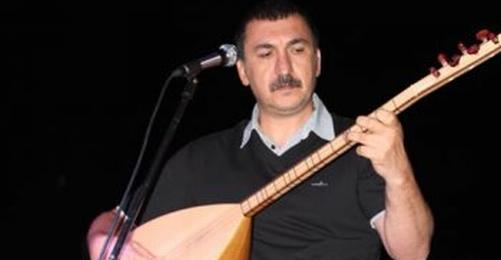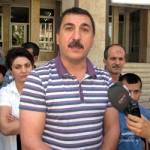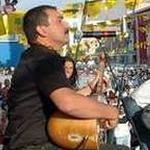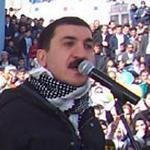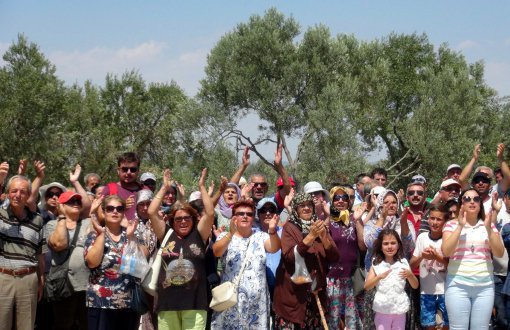Two lawsuits and seven investigations were opened against Kurdish singer Ferhat Tunç due to his speeches delivered during the run-up to the general election on 12 June 2011. Tunç was campaigning as deputy candidate of the Labour, Democracy and Freedom Block for Dersim.
Tunç appeared before the Tunceli Magistrate Criminal Court on Tuesday (13 December). He is tried under allegations of "praising offences and offenders" as stipulated in Article 215 of the Turkish Criminal Law (TCK). The charges stem from the terms "guerrilla" and "respected Öcalan" (imprisoned leader of the militant Kurdistan Workers' Party (PKK)) Tunç used at a program hosted by Tayfun Talipoğlu on TV 8.
The trial pending against Tunç before the Nazimiye Magistrate Criminal Court was continued one day earlier (12 December). In this trial, he is again charged with "praising offenders and offences" because he used the word "martyr" during his election campaign.
The seven on-going investigations were launched on the grounds of speeches made in the region of Dersim (Kurdish-majority south-eastern Turkey) during the pre-election period.
"Messages of peace"
In an interview with bianet, Tunç said that the was tried because of his use of the word "guerrilla" at several places including State Security Courts (DGM) in the past and that he was always acquitted.
According to Tunç, the trials on the above mentioned charges were opened against him intentionally even though the judges knew that the use of that word did not constitute a reason for punishment.
All his speeches made during the run-up to the election were messages of peace related to a democratic and violence-free solution of the Kurdish question, Tunç emphasized. Contrary to the allegations, he did not say anything that would have encouraged the people to an uprising, the artist assured.
He added that it was not up to the judges to decide whom he would have to call respectable" and whom not.
Tunç's lawyer Barış Yıldırım said that all trials and investigations opened against Tunç fell into the scope of freedom of expression. This, according to Yıldırım, was contrary to the decisions of the European Court of Human Rights (ECHR). (NV/VK)





